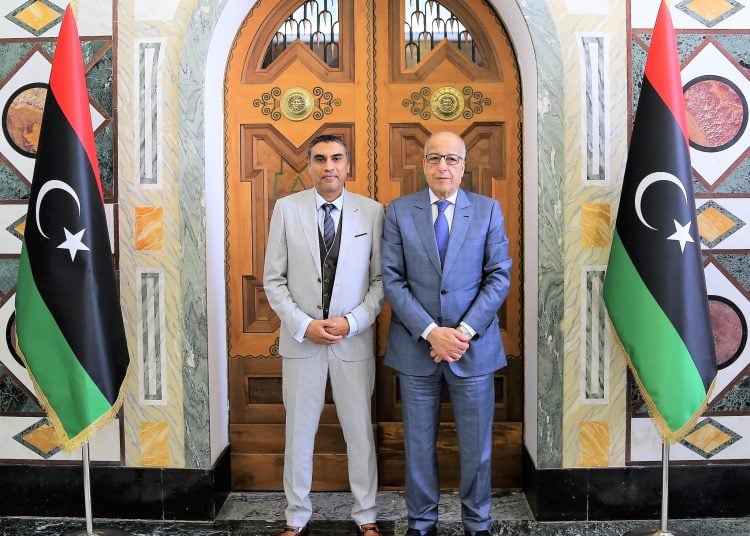The Central Banks of Libya in Tripoli and Benghazi have announced that they have ‘‘returned as a unified sovereign institution’’.
The announcement, made by the social media outlets of both banks, showed photos of the two CBL ‘‘governors’’ in several meetings in the Tripoli CBL. The two identical but separate announcements referred to Tripoli CBL Governor Saddek El-Kaber as Governor and as Merai Al-Barasi as Deputy Governor.
The announcements said ‘‘In implementation of the entitlement to unify the Central Bank of Libya, and as a culmination of the efforts made by the national parties supporting the unification, and as a sign of the unification of the Central Bank of Libya, an expanded meeting was held today, Sunday, August 20, 2023, at the headquarters of the Central Bank of Libya in Tripoli, which included the Governor of the Central Bank of Libya, Saddek El-Kaber, and Deputy Governor, Merai Muftah Raheel Al-Barasi, and Directors of departments and consultants at the Central Bank of Libya in Tripoli and Benghazi.
The governor and his deputy have announced that the Central Bank of Libya has returned as a unified sovereign institution and continue to make efforts to address the effects of the division.’’
Analysis
It must be borne in mind that this is not the first announcement of the CBL reunifying over the last five years. All previous announcements were just that.
It is unclear from the announcement if the (contested) CBL board of directors is behind the reunification. The current board is dominated by eastern politically aligned members. The general understanding is that El-Kaber has refused to convene a board meeting since 2011 because he is in a minority and convening such a meeting would lead to his instant dismissal.
The announcement could also be politically or tribally driven. It could be a move by Hafter, Ageela Saleh or the Barassa tribe (or all of the aforementioned) to which Merai Al-Barasi belongs. The U.S. could also be behind the announcement. It has been pushing for the CBL reunification as a foundation of Libyan political and economic stability and progress.
Hafter and the eastern-based House of Representatives-recognised government have incentives too. Hafter wants his soldiers to be paid and the eastern government want its debts (loans from eastern-based banks) to be cleared by the Tripoli CBL.
El-Kaber could also be worried that any new political arrangements could see him finally replaced and therefore agreed to host Merai Al-Barasi. It may have become politically convenient for several parties to reunify the CBL, or at least show willing by announcing that the CBL is reunifying.
The proof of the pudding is in the eating
Ultimately, if the unification is a reality and not just a political illusion, there will be manifest actions and results by the Tripoli CBL.
Reunification would mean the cheque clearing system will be open with eastern-based banks and there will be no black-market premium charges for cashing cheques from eastern-based banks, for example. Time will, therefore, very quickly answer the question if this reunification announcement is real or just another political gimmick.










